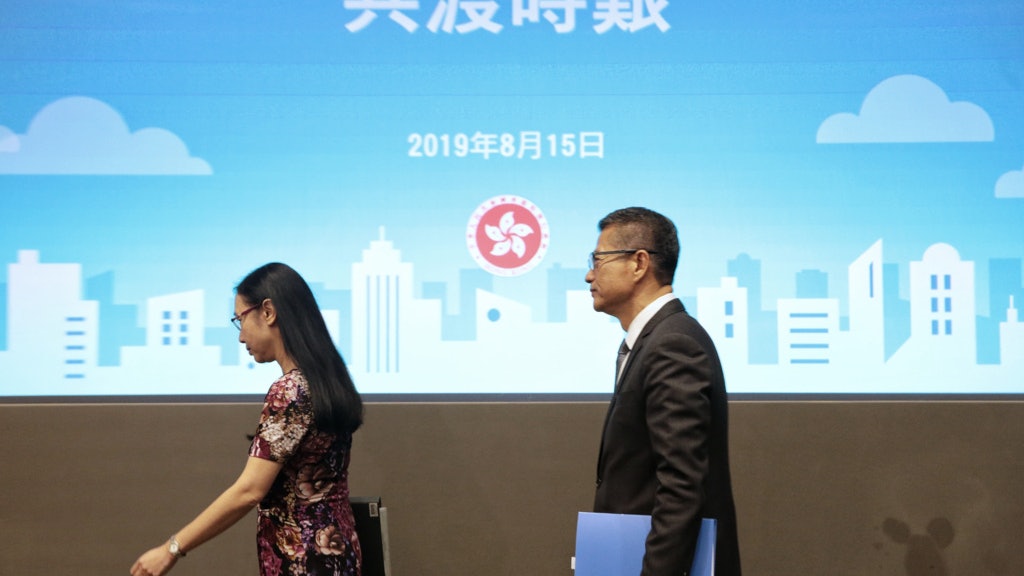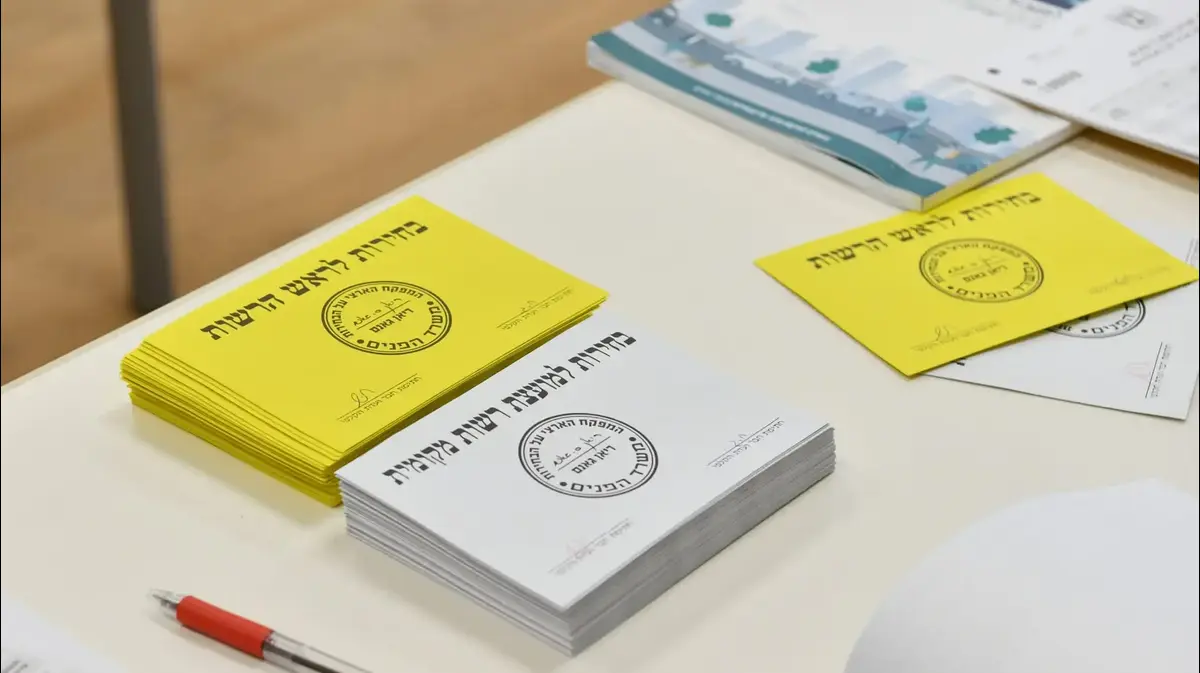weekly
Written by: Hao Yang Yang
2020-02-23 19:45
Last updated: 2020-02-23 19:45If there is anything special about the forthcoming new Budget, just as the Financial Secretary Chen Maobo said, Hong Kong is suffering from internal and external difficulties due to issues such as the Sino-US trade war, anti-revision storms, and the outbreak of new coronavirus pneumonia. The structural decline of the economy has pointed out that the situation is more serious than when SARS raged in 2003. Paradoxically, in the face of the new crisis, we are seeing two kinds of "duplication"-the discussion of budgets in society, repeating "paid money" or not, and how much; the government claims to uphold "finance "New Philosophy", but repeatedly repeating the narrow and prudent and stable framework of the tax base-under both repetitions, this budget seems to have been finalized for a long time. Facing the new situation with "repetition", have we underestimated or overestimated the plight of Hong Kong?
Hong Kong's internal and external difficulties due to issues such as the Sino-US trade war, anti-revision legislation, new coronavirus pneumonia, and economic downturn have further pointed out that the situation is more serious than when SARS raged in 2003. (Profile picture / Photo by Li Zetong)
The "Budget" consultation document pointed out that the real GDP growth in 2019 has continued to decline since the second quarter. After seasonal adjustment, the quarter-to-quarter comparison has decreased by 3.2% in the third quarter in 2009. The year-on-year decline has been recorded for the first time since, which has brought Hong Kong into a "recession." It is expected that the economy will contract by 1.2% throughout the year, and the unemployment rate will also rise from 2.9% in May to July to 3.3% in October to December. In terms of domestic demand, real private consumption Expenses fell by 3.3% in the third quarter, again for the first time in a decade. In the face of the economic downturn, the government launched several rounds of relief measures in the second half of last year, with a total amount of 25 billion yuan. On January 14 this year, Chief Executive Lin Zheng Yue'e invested another 10 billion yuan in recurrent expenditures and launched ten new livelihood measures. All signs indicate that the "financial philosophy" of the Hong Kong Government seems to have changed. This may be seen from a blog by Chen Maobo:
But in general, I think that when the economy is in recession and the downward pressure is still large, the government should adopt an expansionary fiscal policy under the premise of fiscal affordability, support the economy through countercyclical measures, reduce the pain of the citizens, and stabilize the confidence . Therefore, we will keep increasing government expenditures even within our affordability, and try our best to reduce the pressure on citizens and businesses.
Chen Maobo, Budget in Wind and Rain, December 8, 2019If the so-called "new philosophy of financial management" is equivalent to an expansionary fiscal policy, that is, instead of reducing government spending and increasing spending when the economy is down, does it mean that Hong Kong will not embark on a path of austerity like Zeng Junhua (former Financial Secretary)? In fact, the total expenditure of the Hong Kong Government has risen steadily since the financial year 2007/08, and has increased by 126% as of 2018/2019. Among the various recurrent expenditures, social welfare reached 84.3 billion yuan, which was the second largest recurrent expenditure, accounting for 19.1%, which was only 1.4 percentage points lower than education expenditures. Social welfare is also the most dramatic increase in various recurrent expenditures, with an increase of 46.4% in the past five years. This is mainly due to new social benefits such as living allowances for the elderly. However, just as the government has repeatedly tightened and relaxed social welfare policies on its own — Luo Zhiguang, the director of the Labor and Welfare Bureau, said in 2018 that lowering the threshold for “two yuan ride concessions” would significantly increase the government ’s financial commitment. The ten livelihood measures announced in the month reduce the preferential age to 60 in the name of encouraging people aged 60 to 64. Faced with the increasing social welfare expenditure caused by the aging population, will the government tighten the welfare expenditure at any time in the future? For example, the application age for CSSA for the elderly was raised to 65 in early 2019-it is unknown.
The Secretary for Labour and Welfare, Luo Zhiguang, said in 2018 that lowering the threshold of "two yuan ride concessions" would greatly increase the government's financial commitments. However, the ten livelihood measures announced last month are designed to encourage people aged 60 to 64 to find employment. The preferential age has dropped to 60 years. (Profile picture / Photo by Yu Junliang)
Or we can peek into the government's fiscal logic from another article by Chen Maobo:
According to preliminary estimates, relevant measures involve recurrent expenditures of more than 10 billion yuan, and these measures will be gradually implemented next year and beyond. By then, Hong Kong's economy will recover, and government revenue will return to a higher level. At the same time, we can explore whether other open source measures are needed. In addition, over the past few years, the government has continuously introduced some one-off measures, such as tax refunds, rates waiver, and business registration fee waiver. The amounts involved are not small. When necessary, some adjustments may be made to free up resources.
Chen Maobo, Sustainability of Public Finance, January 19, 2020It cannot be denied that the relief measures introduced by the Government during the economic downturn can indeed alleviate the economic pressure on the public, especially the grassroots. The problem is that the government's income determines its expenditure. Even when the economy is down, the main purpose of increasing expenditure is to prevent political instability caused by the economic downturn, and this purpose itself can be related to a just and equal economic transition—the government How to make money fairly and spend it reasonably—it doesn't matter. Moreover, as Chen Maobo said, "At that time, Hong Kong's economy will recover, government revenue will return to a higher level, and other open source measures may be explored at the same time." It seems to reflect that the government is not assured of additional recurrent expenditure and needs to open up new ones. Source of income, should Hong Kong society start discussing tax reform? I did not see any signs that the government wanted to broaden the tax base, not to mention the fact that it was difficult for the government to promote reforms when the public's trust in the current government fell to the bottom. Under this pattern, it is not difficult to understand why the government always introduces new measures such as tax rebates and rates in the Budget. The government is afraid to shake the vested interests to reform, or it does not think that This financial system is a problem. Political parties are also hindered by the political system, political culture, and other reasons, and they are struggling to fight for sugar. As a result, the Budget has become a game of sugar and money.
The government is not assured of additional recurrent expenditure and needs to open up new sources of income. Should Hong Kong society begin to discuss tax reform? (Profile picture / Photo by Luo Junhao)
However, Hong Kong is experiencing multiple crises since the anti-revision storm. The first is the political crisis at the beginning-the distrust of the government by the citizens and the poor authoritarian governance of the government. The second is the social crisis. The two camps that support and oppose the government have become highly polarized in society. The third is the financial crisis. Social conflicts have intensified and the economy has declined. Government revenue has been reduced, and at the same time, people's hardships have to be relieved. The fourth is the recent infectious disease crisis-the government was accused of too few and too slow epidemic prevention measures, everyone was in danger, self-confidence in the government increased again, and the government added an extra 30 billion yuan in anti-epidemic funds. In the next high-profile Budget, does the government have a solution to these four crises? In the past, is it true that "pie sugar" and "money distribution", which are taken for granted, are feasible and interesting? If reforms are proposed at this time, where is the difficulty and how should we start?
Viewing the Public Finance Logic from the Government Money Distribution History
I do n’t know when the Budget will change from a game of “sending sugar” (tax rebates, rates) to a game of “paying money” (cash). Whenever there is a budget consultation, the media and political parties will surely focus on You are fighting for money, and this year is no exception. The difference is the reason for "paying money" from the folk "return wealth to the people" or the official "hide wealth to the people" to this year's "relieve the people's grievances" and "stimulate consumption." Looking back at Hong Kong's short "Pay Money History", the "$ 6,000 plan" in 2011 was the first case, followed by the "Caring and Sharing Plan" in 2018 (that is, sending money for 4,000 yuan), and the rest of the year only smelled the stairs. Public opinion tends to believe that the "4,000 yuan" application process is complicated, time-consuming, high administrative costs, and the government has for a long time lost a large number of application forms. Therefore, there is no review, no application, and the 6,000 yuan plan distributed to Hong Kong residents over 18 years of age was awarded. Good, 4,000 yuan is bad. Looking back, why did the Hong Kong government, which has been described as a "slain", "spend money" in the first place? What does "spending money" mean to Hong Kong's finances? Comparing the historical context of the two "money distribution" incidents, it is not difficult to see the political direction of the "money distribution" of the Hong Kong government.
Looking back, why did the Hong Kong government, which has been described as a "slain", "spend money" in the first place? (Profile picture)
The 2011/2012 Budget proposes to inject RMB 6,000 into all MPF accounts without an income cap, with an estimated total expenditure of RMB 24 billion. According to the "Budget" of the year, the original intention of this proposal was "hope to help more citizens prepare for retirement", and "this will not increase inflationary pressures and we are now financially affordable". However, as some people have already proposed at that time, similar proposals have actually appeared in Zeng Junhua's first copy, the 2008/2009 Budget. The difference between the two is that the previous plan was aimed at "strengthening the retirement protection of low-income workers", so it injected only 6,000 yuan into a fund account with a monthly salary of not more than 10,000 yuan, with a total value of about 9 billion yuan; the latter one did not. Income restrictions. What's more noteworthy is that the society ’s response to these two similar proposals has changed dramatically in three years-the 2008/09 capital injection MPF scheme did not have much opposition, and the MPFA is soon in In 2009/10, more than 1.4 million eligible MPF and Occupational Retirement Scheme members paid special government contributions; by 2011/12, the social response has been huge.
The 2011/2012 Budget proposes to inject RMB 6,000 into all MPF accounts without an income cap, with an estimated total expenditure of RMB 24 billion. (Profile picture)
When the government revised the budget that year, it found that revenue surged (82.8 billion yuan more than originally expected) but expenditures decreased (13.7 billion yuan less than the budget), resulting in a comprehensive surplus of 71.3 billion yuan, which is more than the original budget of 25.2 billion yuan. 96.5 billion yuan. Although the government has introduced measures such as concessionary rates, subsidies for electricity bills, payment of public housing rents, double benefits for social welfare payments, and increases in allowances for dependent children and parents or grandparents, it is still widely regarded as "poor sugar distribution." In the final analysis, the "quantitative easing" of the 2008 financial tsunami caused a lot of hot money to flow into Asia. The Hong Kong property market has started to pick up in mid-2009, and by the end of the year has been 5% higher than the pre-financial tsunami level. Earn a fortune and lack of aggressive means to curb rising property prices, but citizens have to face inflation directly. The "anti-inflation" measures are not strong enough. Injecting funds into the MPF is like the distant water cannot save the near fire, and the public has strongly bounced back. Many people have questioned why the tax refund was not made directly. Coupled with the high administrative fees for MPF, the public is worried that even if the public funds are injected, the money will eventually go to the hands of "fund guys". Pan-Democrats have even called for a "anti-budget" march, forcing the government to revise the budget. One week later, the government made concessions and distributed 6,000 yuan to Hong Kong residents who had reached the age of 18, with a total expenditure of about 37 billion yuan, and public complaints had subsided.
related articles︰
【pneumonia. Depth] Unpaid leave, 20% off food and two major deaths that cannot be saved by the Epidemic Fund
[Wuhan Pneumonia. Depth] What is Hong Kong's lack of governance under crisis?
[Budget. Depth] The wealthy "spend money"? Recognize the faction, you must be like it!
The above excerpt is from the 202nd issue of "Hong Kong 01" weekly report (February 23, 2020) "Repeat and repeat a budget already written? ".
More weekly articles: [01 Weekly Page]
"Hong Kong 01" Weekly is available at major newsstands, OK convenience stores and Vango convenience stores. You can also click here to subscribe to the weekly newspaper to read more in-depth reports.
01 Weekly report in-depth report on Budget 2020 Budget Chen Maobo Hong Kong Economy








